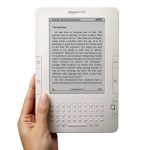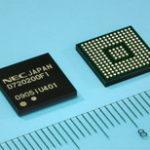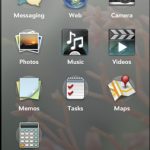Will consumers be able to afford the bandwidth they're craving?

The pocketable Internet has created an insatiable need for bandwidth. 18% of total Internet traffic in 2008 came from mobile devices, and it's only increasing. In fact, a national tier one mobile network operator (MNO) (that preferred to remain nameless) participated in Yankee Group research that recently projected its data consumption would grow by a factor of six in the next three years.
Here is what that means: In 1995, there were about 9,000 cell sites in the United States. Today, there are more than 228,000, or an average of 80 thousand new sites every five years. Each one of these sites serves about a thousand users, and the backhaul is provided mostly T1 and E1 lease lines, with an average of 3 T1's per site and an average bandwidth capacity of 4.62 megabits per second. The maximum speed is generally around 10 Mbps, and Yankee Group research showed that it cost MNOs about $6.1 billion to provide that much bandwidth in 2008.
New paradigm: rentable game downloads for handhelds

What will happen to the video game rental trade and companies like GameFly and Blockbuster when the market changes, and when the more direct channel -- downloads over the net -- takes over? Sony looks to be thinking ahead to that point, as evidenced by its own recent survey.
The handheld market it going to be the first to drop hard copy and go fully downloadable. With the iPhone unexpectedly proving itself a viable outlet for small-footprint, small-price tag games, Nintendo dropping its customary cartridge slot upgrade on its DSi, and rumors of a new disc-less PSP, the changeover is imminent.
Analysts: Windows Mobile 6.5 offers no reason to upgrade, no value for enterprises

"There is little benefit for end users (i.e., business) to upgrade to [Windows Mobile] 6.5," stated Adam Leach, London, UK-based principal consumer wireless analyst for Ovum, in an e-mail to Betanews this morning.
It's a sharp condemnation coming from the oft-cited telecom analyst and contributor to BBC Radio 4, and it's sounding more and more like Leach is not alone. Although there had been a buzz since last February around the upcoming revision to Microsoft Windows Mobile, it has noticeably died down. This even though Windows Mobile 6.5 was supposed to be launched on May 11, the first day of TechEd 2009. As it turned out, the system was only "announced," after having already been "announced" at Mobile World Congress back in February.
Google releases new S60 beta of Sync for Mobile

Last February, Google unveiled the preliminary beta of Google Sync for Mobile, which synchronizes contacts and calendar data between the user's Google account and his iPhone, BlackBerry, Nokia Standard, S60, Sony Ericsson, or Windows Mobile device.
As Google did previously with BlackBerry, yesterday it launched an OS-specific version of the software beta for S60.
Discovery.com targeted in patent battle over Amazon Kindle

In March, Discovery Communications, the company responsible for the Discovery Channel and Animal Planet cable networks, filed a patent infringement suit against Amazon.com for its Kindle e-reading device. The patent is property of Discovery founder John S. Hendricks, and was granted in 2007, nearly ten years after it was filed. The company sought damages and royalties from Amazon and its successful Kindle.
Amazon fired back at Discovery on May 15, in two separate legal actions. The first is a categorical denial of all of Discovery's complaints and countersuit in the US District Court in Delaware. And the second is a suit in US District Court in Western Washington, claiming that the Discovery Channel's online store uses search and recommendation methods that infringe on four of Amazon's patents. Like Discovery's suit beforehand, it asks for royalties and damages sufficient to compensate for the infringement.
5 Gbps USB 3.0 comes closer to reality with new controller

USB 3.0 has been expected to "arrive" for a considerable amount of time, but due to the lengthy draft certification process, and general lack of pressure to get 3.0 "SuperSpeed" devices out in the market, it wasn't expected to become widespread until 2010. However, with NEC's new host controller, the arrival of the new USB standard could arrive soon.
The host controller is a chip which connects the host system such as a PC to external storage, peripherals or other systems, and NEC's new host controller (µPD720200) is based on the SuperSpeed USB standard which was finalized in November of 2008, more than eight years after the USB 2.0 spec was released.
Ahead of Sprint's Pre launch, AT&T weighs tiered mobile data plans

Rather than lower the cost of AT&T's $70 per month unlimited iPhone data plan, the company may introduce tiered mobile data plans. Ralph de la Vega, President and CEO of AT&T Mobility and Consumer Markets yesterday said the plans would be similar to the subsidized netbook trials that began in early April in Philadelphia and Atlanta.
In those trial markets, the mobile broadband plans were $40 per month for a 200 MB data cap and $60 per month for a 5 GB cap, options that AT&T found "met the needs of casual to occasional data users, as well as frequent and heavy users." That is, of course, when coupled with Fast Access DSL service (also a part of some plans.)
Napster: What you should know before plunking down five dollars

There's no doubt that five dollars a month for a music subscription is about as dirt cheap as you can get, so Napster is right on when it comes to attractive pricing. Five dollars for five DRM-free MP3s and unlimited streaming of Napster's catalog per month is a price seated squarely on the "why not?" point.
But this is the point where you have to be wary, because you could end up buying more of what you already have.
LG's new BD player is first with high-def DivX stamp

Last year, DivX began to certify certain Blu-ray players for DivX playback, which meant that the high-definition players could support files in the popular codec that were burned onto high capacity Blu-ray discs. As much as 25 hours of standard DVD quality footage could be loaded onto a single disc.
While that news was certainly welcomed by achivers, home video enthusiasts, and [ahem]...other consumers of DivX files, it did not certify the high definition players to play back high definition files. Today, DivX announced that it has certified its first Blu-ray player for 1080p HD DivX playback: the LG BD390.
Android 1.5 'Cupcake' delayed by one week

The "early May" release of Android 1.5 has become "early June," with a recent announcement from T-Mobile. The G1 Community forum received a message yesterday that said, "We are working diligently to get Android 1.5 out as soon as possible, while aiming to ensure a consistent, positive experience for our customers. We're finalizing the build this week to ensure optimal functionality and smooth delivery. Therefore, the rollout schedule has been reset by approximately a week, and we expect all G1 customers will have the update by early June."
By the time the OS update better known as "Cupcake" is released over the air, it will have been on the public's radar for more than six months; and its features are well-known and well-desired (only now a bit more impatiently).
Microsoft launches 'My Phone' beta for Windows Mobile 6+

Today, Microsoft announced that its cloud-based data sync service for Windows Mobile called My Phone will be moving into its open beta phase. Similar to MobileMe from Apple, My Phone lets users automatically and wirelessly back up contacts, photos, video, text messages and calendar data to a password-protected cloud account.
My Phone first made an appearance in February as a closed beta update to the service originally known as SkyBox; today, all users of Windows Mobile 6.0 or 6.1 can download the service by going to myphone.microsoft.com.
Palm's game-changing Pre arrives June 6

Calendars were tentatively marked this week for something from Palm, and today we've found out what it was: the launch date and price of the Pre.
The eagerly anticipated Palm Pre is slated for availability on June 6, and will cost $199 after a $100 mail-in rebate and a two year contract through Sprint stores, Best Buy, Radio Shack, and even Wal-Mart.
Atlanta's Clear WiMAX launch only weeks away

Sprint's and Clearwire's WiMAX joint venture Clear is expected to gain 15 new markets by the end of 2010. Following up on the announcement that the company had aligned with Cisco for infrastructure, Clearwire confirmed the next 4G connected city will be Atlanta.
CEO William T. Morrow said in Clearwire's earnings call, "We remain on track to launch our next two markets this summer. In June, we'll be expanding to Atlanta, adding nearly 3 million people to the Clear coverage footprint in a city that will be our largest market to date. With the network covering upwards of 1,200 square miles, we have validated that we can design and deliver large scale markets with our low cost network architecture, another key differentiator for Clearwire. And as with all of our pre-WiMAX markets, we are utilizing a hybrid approach of microwave rings and dark fiber across approximately 90% of our sites. We believe that this is the lowest cost, most scalable back haul approach to transport the immense 4G data payload from our sales side."
ZigBee aims to cut energy costs through IP-based metering

The International Electrotechnical Commission (IEC) is a non-profit international board which drafts and publishes standards for a huge range of electric and electronic technologies. Among the hundreds of standards put out by the IEC, some of the most notable include VHS/S-VHS video cassette technology (IEC 60774), digital audio based on compact discs (IEC 60908) and electromagnetic compatibility (IEC 61000).
You may not be familiar with ZigBee just yet, but if the IEC gets its hands on it, that could change. ZigBee is a low-power wireless protocol similar to Bluetooth that fits under the 802.15.4 personal area network standard. Its current largest deployments are in home utility wireless networks and smart meters, and because of its conservative use of electricity, the ZigBee Alliance is attempting to make it the preeminent standard for smart energy metering. Today, the group announced that it will be submitting its ZigBee Smart Energy profile to the IEC for as the basis of a new standard in smart grid technology.
Napster will slash its subscription fees

After nearly six years as a subscription-based service, Napster will make its library of over 7 million tracks available tomorrow for as low as five dollars a month. In addition to unlimited streaming, users get to keep five DRM-free tracks per month, essentially making the streaming service, which formerly cost $12.95 per month, free.
Napster's leaked press release describes streaming as "CD Quality," and most MP3s available for download in the service are encoded at 256 kbps, but there are also tracks currently only available in 128 kbps. The bitrate of each individual track will be listed when purchasing.
Tim's Bio
Tim Conneally was born into dumpster tech. His father was an ARPANET research pioneer and equipped his kids with discarded tech gear, second-hand musical instruments, and government issue foreign language instruction tapes. After years of building Frankenstein computers from rubbish and playing raucous music in clubs across the country (and briefly on MTV) Tim grew into an adult with deep, twisted roots and an eye on the future. He most passionately covers mobile technology, user interfaces and applications, the science and policy of the wireless world, and watching different technologies shrink and converge.
© 1998-2025 BetaNews, Inc. All Rights Reserved. About Us - Privacy Policy - Cookie Policy - Sitemap.
